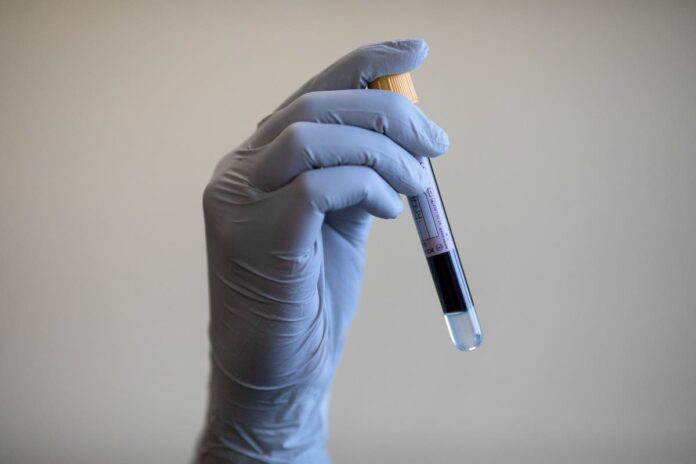Thousands more patients at risk of developing ovarian cancer could be referred for genetic tests under new guidelines from the health watchdog. It is hoped the move will raise ‘greater awareness and increase the availability of genetic testing’ so that those at risk – including men, women, trans and non-binary people – can take preventative measures, such as having surgery. The National Institute for Health and Care Excellence (Nice) said those eligible for genetic testing include people who have had certain cancers, or whose relatives have breast or ovarian cancer. Hollywood actress Angelina Jolie raised the profile of these sorts of cancers when she underwent a double mastectomy in 2013 after discovering she carried the BRCA gene mutation. She said her doctors estimated she had an 87% risk of breast cancer and a 50% risk of ovarian cancer. The development of ovarian cancer is linked to nine genetic variants – BRCA1, BRCA2 , MLH1, MSH2, MSH6, RAD51C, RAD51D, BRIP1 and PALB2 – which can be carried by anyone and passed down to children. Doctors asses the likelihood of someone carrying a high-risk gene using family history criteria and a mathematical scoring system. At the moment, those with a 10% probability are referred for genetic testing, which is carried out via a blood test. Under the new guidelines, the threshold will be lowered – dependant on age – to as little as 2% in some cases. Access unlimited streaming of movies and TV shows with Amazon Prime Video Sign up now for a 30-day free trial Sign up Access unlimited streaming of movies and TV shows with Amazon Prime Video Sign up now for a 30-day free trial Sign up Nice said the new guideline ‘will help to build a better picture of how many people have the high-risk genes as more people come forward for testing’. There are about 7,500 cases of ovarian cancer each year, with the highest rates among women aged 75 to 79. Nice suggests that 340,000 to 440,000 women in the UK carry one of the genes, but it is unknown how many men, trans women and non-binary people also have a variant. People from certain backgrounds are also expected to be eligible for testing, including 280,000 Ashkenazi and Sephardic Jews, who have a higher risk of carrying the BRCA1 and BRCA2 genes, as well as around 1,000 people with Greenlander heritage. Dr Lyndsy Ambler, senior strategic evidence manager at Cancer Research UK, said: ‘Clearer guidance for health professionals is important to support access to genetic testing for people who may benefit from this. ‘However, it’s crucial that the NHS has the resources required to deliver quality genetic counselling services to ensure that those referred are supported to make decisions about their health. ‘If you think you might have a family history of ovarian cancer or a genetic risk, then speak to your doctor.’ The new Nice guidelines are open for consultation until October 27.
Thousands of patients at risk of developing ovarian cancer could get tests
Sourceindependent.co.uk
RELATED ARTICLES


